ADVANCING DEEPFAKE DETECTION: CURRENT RESEARCH AND CHALLENGES
Speaker: Irene Amerini
Affiliation: Department of Computer, Control and Management Engineering (DIAG), Sapienza University of Rome
Summary: The widespread availability of easy-to-use editing tools has led to increasing concerns about the reliability of digital media over the last decade. These concerns have intensified with the rise of artificial intelligence techniques capable of generating high-quality fake images and videos, such as Deepfakes and AI-generated content, which require minimal technical knowledge from users. The proliferation of such content, coupled with the rapid spread of information through social media, has significantly amplified the issue of misinformation. Advancements in deep learning have given rise to increasingly sophisticated technologies for generating deceptive media (e.g., StableDiffusion, Midjourney, DALL-E 3, SORA), as well as corresponding detection methods. Multimedia Forensics is constantly working on developing countermeasures to identify and mitigate manipulated and fake content to limit its dissemination. In recent years, deepfake detection has received significant attention, leading to the proposal of several solutions aimed at tackling the growing spread of fake multimedia content. However, most of these solutions perform well only in controlled environments, such as laboratory settings, and fail to deliver reliable results in real-world scenarios. The challenge now is to develop detection tools capable of handling issues like data scarcity, open-set conditions, and the need for explainability—all common characteristics of real-world situations. A major issue remains the generalization of existing solutions to diverse and out-of-distribution data, ensuring that detection systems are robust and interpretable in unpredictable, practical applications. This seminar aims at describing the latest findings and advancements in deep learning approaches for identifying fake media and discuss the research challenges ahead.
Biography: Irene Amerini is Associate Professor at DIAG, the Department of Computer, Control and Management Engineering of Sapienza University of Rome, Italy where she leads the ALCORLab Multimedia Forensics Research Team. Previously she was a postdoctoral researcher at MICC Media Integration and Communication Center, University of Florence where she received the Ph.D. in computer engineering in 2011. In 2018 she obtained a Visiting Research Fellowship at Charles Sturt University offered by the Australian Government through the Endeavour Scholarship & Fellowship program. She has been member of the IEEE Forensics and Security Technical Committee and currently she is member of the EURASIP Biometrics, Data Forensics, and Security and of IAPR Computational Forensics Committee. She has been Associate Editor of the Elsevier Journal of Information Security and Applications and guest editors of many special issues in various journals on the theme of multimedia content security technologies and deep learning for image and video forensics. Her main research activities include computer vision and multimedia forensics.
Registration: No registration is required for this seminar.


